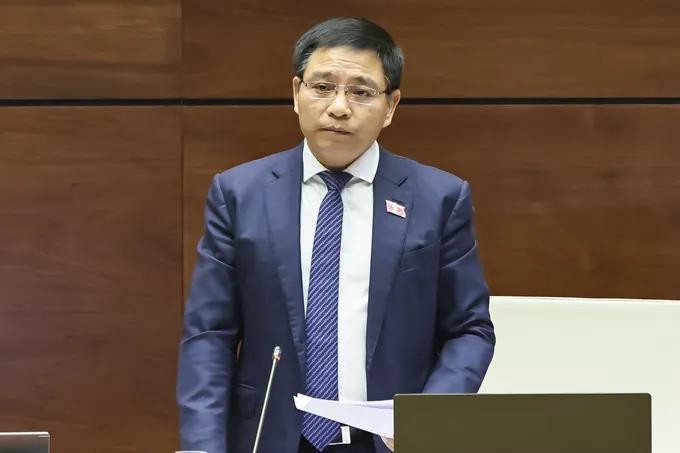This morning, at the National Assembly's discussion session on the National Assembly's draft Resolution on mechanisms and policies for private economic development, Minister of Finance Nguyen Van Thang explained the opinions that National Assembly deputies were interested in.

Addressing the review of subjects covered under the draft Resolution to ensure equality across economic sectors, alignment with international treaties, and adherence to constitutional provisions, the Minister affirmed that the draft includes mechanisms and policies applicable to enterprises, business households, and individual entrepreneurs.
For specific groups—such as small and medium-sized enterprises or innovative startups requiring tailored support—dedicated provisions will be outlined in relevant articles and clauses of the Resolution.
Regarding the alignment of certain mechanisms and policies in the draft Resolution with laws currently under consideration by the National Assembly at its 9th session, the Government has instructed drafting agencies to urgently review and incorporate the contents of Resolution No. 68-NQ/TW. This effort aims to institutionalize its principles within the laws and resolutions being submitted during this session.
The Minister stated that this draft Resolution can outline innovative and effective mechanisms and policies for businesses, business households, and individuals operating in various sectors. The proposed amendments to the laws, which are set to be presented to the National Assembly during the 9th session, will establish mechanisms and policies for enterprises across all economic sectors, ensuring the integrity of the overall legal framework is maintained.
Furthermore, for aspects that necessitate thorough research and assessment, currently governed by other laws and resolutions regarding inspection, examination, licensing, certification, and the management of violations and incidents in business activities, as well as bankruptcy proceedings, the draft Resolution offers several principles and guidelines for the amendment and enhancement of specialized laws, in alignment with the directives of Resolution No. 68-NQ/TW.
Regarding tax incentives, Minister Nguyen Van Thang said that policies related to tax and fee incentives are designed on the basis of nurturing revenue sources. Accordingly, these support policies may reduce budget revenue in the short term, but in the long term, businesses will have the opportunity and conditions to expand production and business; thereby, contributing more to the state budget and socio-economic development.
Some opinions say that the abolition of lump-sum tax for business households may create a compliance burden when business households have to switch to a new tax declaration and payment regime. The Minister emphasized that the abolition of lump-sum tax for business households is a very correct policy of the Party and State to ensure transparency in the activities of business households, create equality in tax regimes between business households and enterprises, and encourage business households to transform into enterprises.
The Ministry of Finance is currently piloting the removal of lump-sum taxation for business households in selected localities. Practical results have demonstrated the effectiveness of this policy, highlighting the need for its official implementation in the near future. At present, the Ministry is actively preparing the necessary conditions—particularly in terms of information technology infrastructure, facilities, and regulatory frameworks—to support its early rollout.
The Minister stated that to assist business households in declaring and paying taxes following the elimination of the lump-sum tax, the Ministry of Finance has instructed a review and enhancement of tax policies and calculation methods for these households. Notably, there is a need to enhance the use of information technology and significantly advance digital transformation in the tax sector, including the implementation of electronic invoices from cash registers to ensure accurate and complete tax collection, thereby saving time and reducing costs for business households.
Simultaneously, to alleviate the financial burden and incentivize business households to embrace digital transformation, the draft Resolution establishes that the government subsidize the expenses of developing and procuring digital platforms and communal accounting software, enabling business households to utilize these resources without charge.
Some representatives express apprehension that restricting oversight evaluations to annual occurrences, barring instances of evident infractions, might generate vulnerabilities in regulatory enforcement. Nevertheless, the Minister articulated that enhancements to the commercial ecosystem have been implemented, specifically designed to maximize facilitation for manufacturing and entrepreneurial endeavors of citizens and corporations. The directive seeks to terminate the redundancy and replication prevalent in supervisory protocols.
























